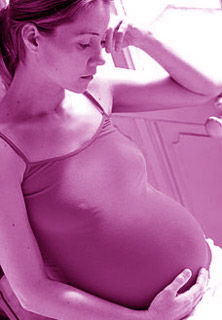
Cerebral palsy is a group of neurological disorders marked by physical disability. This particular study was conducted on a mouse model.
The researchers from Inserm, l’Institut national de la sante et de la recherche medicale, the French public biomedical research agency, believed that it can apply to humans also.
As a part of the study, the boffins adjusted the normal cycle of light and dark that the pregnant mice were accustomed to for half of the mice, subjecting them to a mild level of stress.
They then exposed the brains of the developing foetuses to injury. When the brains of the young mice were examined on birth, led by Pierre Gressens, MD, PhD and his team found that the offspring born from stressed mothers showed brain lesions about twice as big as those in offspring of unstressed mothers.
‘Determining the impact of gestational stress on the incidence of cerebral palsy would be of paramount interest. Limiting stress during human pregnancy might prove to be a cost-efficient way to reduce the human, emotional, social and economic burden of cerebral palsy,’ says Gressens.
Victoria Luine, PhD, distinguished professor of psychology at New York’s Hunter College, who did not participate in the research, said that the study also added to other findings that showed that constant stress could negatively impact quality of life.
‘These findings are consistent with growing evidence that constant stress, even minimal, can have a major impact on the quality of life,’ she said.
